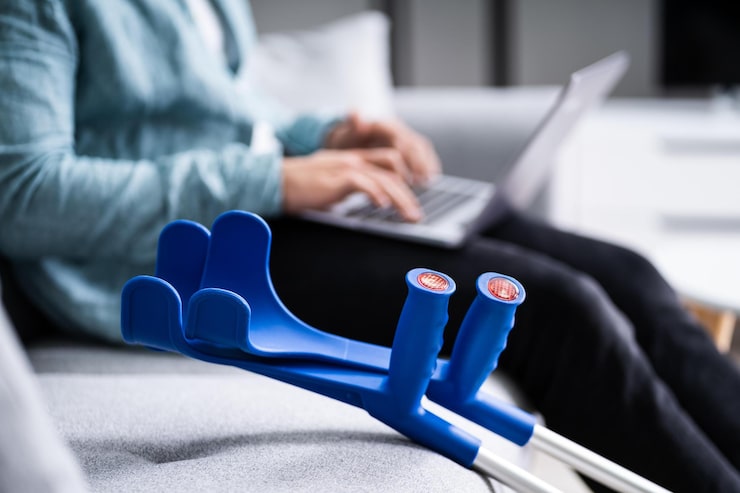Starting physiotherapy can be an exciting yet challenging experience. Whether you’re recovering from an injury, surgery, or managing a chronic condition, making the most out of your physiotherapy sessions can accelerate your recovery and improve your overall quality of life. Success isn’t just about showing up for appointments — it’s about staying engaged and proactive throughout the entire process.
In this guide from Physio Cottage, we’ll cover practical strategies to help you maximize your physiotherapy sessions and achieve the best results possible.
Choose the Right Physiotherapist
Before you begin, selecting the right physiotherapist is a critical first step. Not all physiotherapists have the same expertise, and finding one who aligns with your specific needs ensures that you receive tailored care. As one of the clinics offering physiotherapy services in Scarborough, we are dedicated to providing personalized and high-quality care to help you achieve your health and wellness goals.
- Specialization matters: Physiotherapists may specialize in areas such as sports therapy, post-surgical rehabilitation, or chronic pain management. Make sure to choose a therapist with experience in treating your particular condition.
- Reputation counts: Ask for recommendations from healthcare professionals or read reviews from former patients to gauge the therapist’s effectiveness.
- Comfort and trust: It’s essential to feel comfortable with your physiotherapist. Trust fosters open communication, which is key to successful treatment.
A skilled physiotherapist will create a plan that’s both challenging and realistic, setting you up for long-term success.
Set Realistic and Clear Goals
A common reason physiotherapy sessions fall short is the lack of clear, achievable goals. When you first meet with your physiotherapist, spend time discussing what you want to achieve through treatment. These goals should be specific to your condition and aligned with your everyday activities.
- Be realistic: Understand that physiotherapy is often a gradual process. Setting small, incremental goals can help keep you motivated without becoming discouraged.
- Collaborate with your therapist: Work with your physiotherapist to break down larger recovery objectives into smaller milestones. This helps track your progress and keeps you on the right path.
By having clear goals, you’ll have a better understanding of what progress looks like and will be more likely to stay committed.
Communicate Openly and Honestly
Successful physiotherapy depends heavily on communication. Your therapist can only provide the best care if they understand your current physical state, pain levels, and any concerns you have during the sessions.
- Share your full medical history: Be open about past injuries, surgeries, and medications. This information helps the therapist design a plan that’s safe and effective for your situation.
- Discuss pain and discomfort: Don’t hesitate to voice concerns about any pain during exercises or movements. Pain that feels abnormal or sharp might indicate that adjustments are needed.
The more honest you are with your therapist, the better they can tailor your treatment to your needs.
Stay Consistent with Your Appointments
Consistency is key when it comes to physiotherapy. Skipping appointments or failing to follow the treatment plan can slow down progress and lead to setbacks.
- Make it a priority: Treat your physiotherapy sessions as a vital part of your recovery process. Even if you feel like you’re improving, continuing regular appointments ensures that your recovery stays on track.
- Avoid breaks: If possible, avoid long gaps between sessions. Regular visits help your therapist monitor progress and make necessary adjustments in real-time.
Attending each session will build on the previous one, ensuring steady progress and better long-term results.
Do Your Homework: The Importance of At-Home Exercises
Physiotherapy doesn’t stop when you leave the clinic. Most treatment plans include exercises to be done at home, and these are just as crucial as your in-office sessions.
- Stick to the plan: Your therapist will provide you with exercises tailored to your specific recovery needs. Performing them regularly at home strengthens muscles, increases flexibility, and promotes faster recovery.
- Ask questions: If you’re unclear about how to do an exercise, don’t hesitate to ask your therapist for a demonstration or clarification.
- Adjust if necessary: If certain exercises cause pain or discomfort, let your therapist know immediately. They can modify the exercise to better suit your condition.
Being diligent with your at-home exercises ensures that you’re making the most of your physiotherapy and progressing as planned.
Track Your Progress
Monitoring your own progress can be motivating and give you a clear sense of how far you’ve come. Regularly check in with yourself, noting any improvements or lingering issues.
- Keep a journal: Document how you feel after each session. Are certain movements easier? Is the pain decreasing? This information is valuable for both you and your therapist.
- Adjust expectations: Recovery isn’t always linear. There might be setbacks along the way, but tracking your progress will help you stay focused and motivated through ups and downs.
Being actively involved in tracking your progress helps you stay committed and allows your therapist to adjust your treatment plan as necessary.
Stay Patient and Positive
Recovery takes time, and it’s normal to feel frustrated when progress seems slow. However, maintaining a positive and patient attitude is key to staying motivated throughout your physiotherapy journey.
- Celebrate small wins: Even minor improvements, like being able to walk further or having less pain, are steps toward recovery. Recognize these achievements to stay motivated.
- Understand the process: Physiotherapy is not a quick fix but a long-term investment in your health. Being patient with the process will help you stay focused on your end goals.
By keeping a positive mindset, you’re more likely to push through challenges and continue making progress.
Post-Therapy Care: What Comes Next?
Once your formal physiotherapy sessions are over, the work doesn’t stop. To maintain your progress and avoid future injuries, it’s crucial to continue some of the exercises and habits you learned.
- Stay active: Incorporate regular physical activity into your routine to maintain strength and mobility.
- Follow up if necessary: In some cases, occasional follow-up visits with your therapist can help you stay on track and address any lingering issues.
- Listen to your body: If pain returns or you feel like you’re losing progress, consult your physiotherapist sooner rather than later.
Continuing to care for your body post-therapy will ensure that the benefits of your hard work are long-lasting.
Sum Up
Successful physiotherapy requires more than just showing up — it involves active participation, clear communication, and dedication both during and after your sessions. By choosing the right physiotherapist, setting realistic goals, and staying committed to the process, you can ensure that your physiotherapy sessions are as effective as possible.
The road to recovery may take time, but with the right mindset and strategies, you’ll be well on your way to achieving a healthier, pain-free life.










